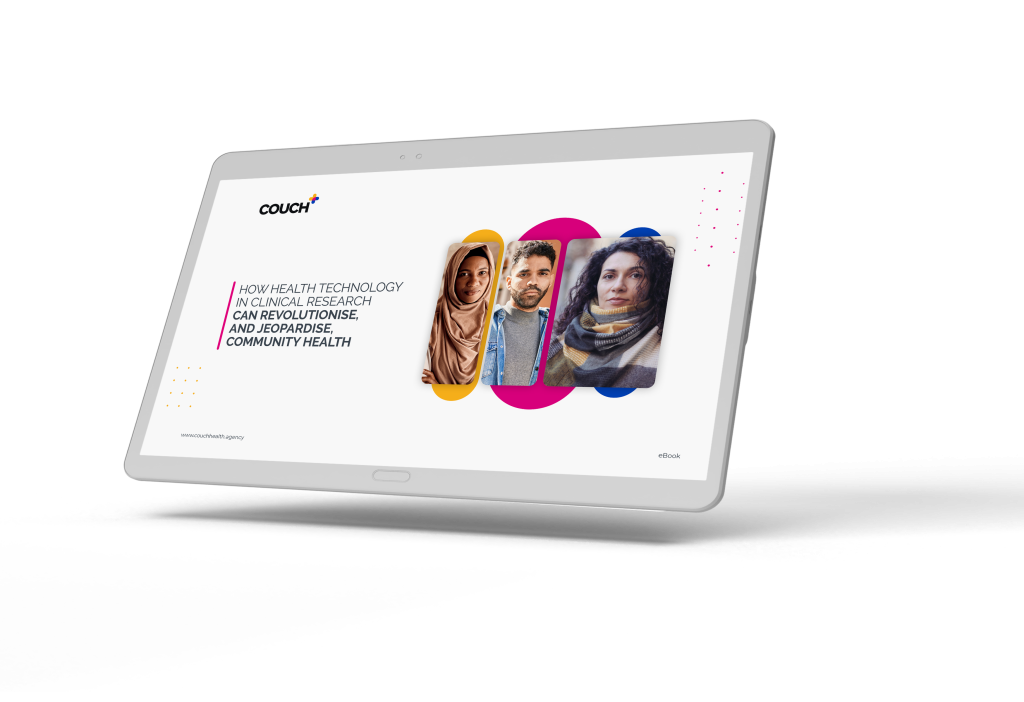
It can help people take better control of their own health and help healthcare providers work more efficiently and effectively.
But what happens when these benefits are only felt by some patient populations, while others face barriers in accessing any of the advantages health tech brings? In short, it causes health inequity that puts certain patient populations at a huge disadvantage.
Read the eBook to discover the issues preventing people from benefiting from health technology, and our recommendations for making sure that internet-based health developments are inclusive of all, not some.
A lack of access to the internet
Limited trust in DHIs and healthcare
Low digital and health literacy
Lack of representation in data
These include:
Developing DHIs that have blended online-offline functionality
DHIs should be cost-effective for users
Training and tech support should be provided to users
Design DHIs with the end user in mind

COUCH Health
5 Richmond Street
Manchester, M1 3HF
+44 (0) 161 300 0874
hello@couchhealth.agency
Receive exclusive insights from our experts on important topics and news within the inclusive clinical research space.